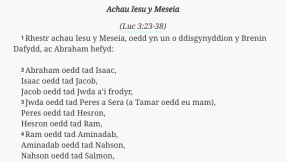
The England and Wales Cricket Board (ECB) has deleted a social media post and apologised for any potential offence after joking that the Pope “loves the Ashes”.
On Ash Wednesday the Pope, who has been in hospital for three weeks, said on X, "The Ashes remind us of who we are, which does us good.
"It puts us in our place, smooths out the rough edges of our narcissism, brings us back to reality, and makes us more humble and open to one another. None of us is God; we are all on a journey."
The ECB responded to the post saying, "Even @Pontifex loves The Ashes." A spokesman for the ECB later apologised for the “ill-judged” post, which was also deleted.
The Ashes of Christianity
Traditionally on Ash Wednesday many Christians place ash on their forehead in the shape of a cross. This marks the beginning of the period of Lent leading up to Easter. The ashes are a reminder of mortality and the words in Genesis that man came from the dust and must return to the dust.
The ashes can also be a sign that one belongs to Jesus, as they are marked on the forehead (as in Revelation) and a symbol of mourning or repentance.
The Ashes of Cricket
The Ashes is the name given to a series of test matches between England and Australia. Its name derives from a newspaper column commenting on Australia’s first ever win in England in 1882, in which it was stated, “the body [of English cricket] will be cremated and the ashes taken to Australia”.
The Ashes is quite possibly the oldest sporting rivalry in the world, dating back as it does, arguably to 1877 when the first test match was played in Melbourne.
It is also quite possibly the most wholesome sporting rivalry in the world. While fiercely contested by both sides, there are no dark historical undertones to it, as might be the case with say, England vs Germany or England vs Argentina in football or India vs Pakistan in cricket.













